 |
NSF REU Site: Geographic Information Systems (GIS) for Disaster Resilience Spatial Thinking |
We are no longer accepting applications for the NSF REU Program
For learning materials related to our REU, visit our Research Skills Training Webpage
Before applying to the REU Site, please review this video that contains information for potential applicants:
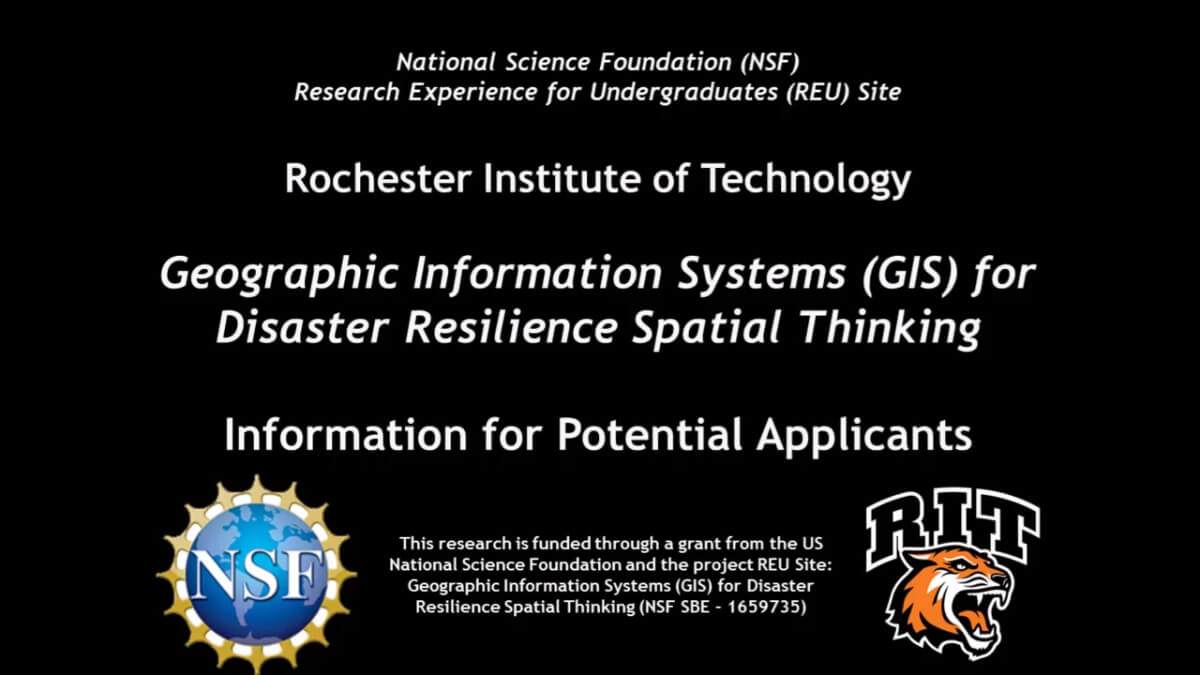
Information for potential applicants to the National Science Foundation (NSF) Research Experience for Undergraduates (REU) site ‘Geographic Information Systems (GIS) for Disaster Resilience Spatial Thinking’ hosted at the Rochester Institute of Technology.
Before submitting your application, please review the following:
1. The program is only available to current, fulltime undergraduate students at US-based institutions. Students who have already graduated or are planning to graduate before the summer cannot be considered.
2. We can only consider applications from US Citizens and permanent residents.
3. You must have a GPA 3.0 or higher (4.0 scale) at the time of your application.
4. Review the entire application form before submitting your materials. Incomplete or partial applications will not be reviewed.
5. After submitting your application via the Google form using the link below, please submit:
a. A letter of recommendation from your primary faculty adviser that can speak on your maturity, capability, and intellectual capacity for conducting research. Have the letter of recommendation from your primary faculty adviser sent directly to Dr. Brian Tomaszewski – bmtski@rit.edu
b. A letter of recommendation from another faculty member at your institution that can speak on your maturity, capability, and intellectual capacity for conducting research. Have the letter of recommendation from another faculty member at your institution sent directly to Dr. Brian Tomaszewski – bmtski@rit.edu
**Note: To ease in the processing of your recommendation letters, when emailing Dr. Brian Tomaszewski, use a subject line of: RIT NSF REU Site: Recommendation letter for {your name and institution here}. For example, RIT NSF REU Site: Recommendation letter for John Smith – University of Wapno.
**Note: As part of the application process, you are also requried to submit a 500-1000 word statement of interest on your motivation to join the REU Site, including how you see the experience benefiting your educational experience and potential for research in your respective fields of interest. After your statement, please include a maximum 2 page resume that outlines your course work and any relevant research or work experience. The statement of interest and resume should be in one file submission. Note: requires a google account to upload your statement. Document and PDF files only are accepted, 10mb maximum file size.
To submit your REU Application, please visit this link: REU Site Application (requires a gmail/google account).
Timeline:
- Full applications (including reference letters) for the 2018 REU Cohort: Friday 7 December 2018 Friday 18 January 2019
- Skype interviews for short-listed applicants: Week of 17 December 2018 28 January 2019
- Notification of selected applicants: Week of 31 December 2018 4 February 2019
- Commitment/confirmation from accepted applicants to participate in 2018 summer cohort due: Monday 7 January 2019 Monday 11 February 2019
Houston Harvey Outreach
We are looking to find partners to work with in Houston, Texas related to the response to and recovery from Hurricane Harvey.
See:
RIT Hurricane Harvey Outreach Description (pdf file)
for more information.
About the Project
This project is funded from the Research Experiences for Undergraduates (REU) Sites program in the SBE Directorate. As such, it has both scientific and societal benefits, and it integrates research and education. This cutting-edge ten-week interdisciplinary REU Site hosted at the Rochester Institute of Technology (RIT) will be the first to focus on Geographic Information Systems (GIS) for disaster resilience spatial thinking. Project objectives are to (1) enable students to research, create, and evaluate serious GIS games for disaster resilience spatial thinking, and (2) create and evaluate an interdisciplinary STEM research environment at the intersections of Geographic Information Science, disaster management, Information Technology (IT), social science and game development. The Site will recruit Geography, social science and IT students. Intended impacts are to create intellectual, methodological and communication foundations for future scientists to conduct interdisciplinary research at the intersections of GIScience, disaster management, IT, and game development. The RIT REU Site will advance discovery and understanding while promoting teaching, training, and learning by addressing pressing national education and training needs for next-generation scientists capable of conducting interdisciplinary, spatially-oriented STEM research focused on GIS and societal disaster resilience. The Site also has several societal benefits such as (1) addressing pressing national geospatial software development workforce needs identified in the Geospatial Technology Competency Model through REU Site efforts focused on spatial computing skill development, (2) disseminating REU student disaster resilience scenarios, datasets and serious game intellectual products for disaster resilience education, training and capacity building, and (3) demonstrating the importance of GIS, spatial thinking, serious games, and disaster resilience to early career scientists to potentially save lives when disasters occur. The REU Site is particularly strong with broadening the participation of underrepresented groups through integration with RIT's National Technical Institute for the Deaf that will recruit and engage Deaf and Hard of Hearing students and faculty in the research. All students will be encouraged to explore disaster resilience issues surrounding special needs people. The Site will enhance infrastructure for research and education - the Site is envisioned as a start to a 10-year international program on GIS, spatial thinking and disaster management that will leverage the PI's existing international NSF research funding and networks.
The fundamental spatial nature of disasters necessitates deeper scientific understanding of how GIS can advance disaster resilience spatial thinking. Serious games are well known for disaster management training and simulation but underused for spatial thinking research. The proposed REU Site will be the first research environment to explore the novel linkage between disaster resilience, spatial thinking, GIS, and serious games via three unanswered scientific research questions: (1) Which spatial thinking components are relevant to disaster resilience, (2) Which GIS tools and visual representations best connect disaster resilience with spatial thinking, and (3) What are the best serious game design practices that incorporate spatial thinking GIS tools and visual representations for disaster resilience to achieve learning outcomes. Mentored student activities involve central hypothesis testing by identifying, designing and creating disaster resilience spatial thinking serious GIS games. The proposed REU Site will provide undergraduate students numerous opportunities to advance this research agenda while themselves benefiting from the research experience.
Video overview of 2018 research activities:
For more information, please visit: https://www.nsf.gov/awardsearch/showAward?AWD_ID=1659735

This research is funded through a grant from the US National Science Foundation and the project REU Site: Geographic Information Systems (GIS) for Disaster Resilience Spatial Thinking (NSF SBE - 1659735)
REU 2018 Cohort - click on each Fellow's picture to learn more about them.
Casey Lane
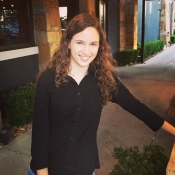
I’m a current senior hailing from Jacksonville University, located in Jacksonville, Florida. I’m majoring in Geography with minors in GIS and Criminology. Along with classes, I am also interning with the Jacksonville Sheriff’s Office in their GIS/ISM unit. My research interests include both physical geography and human geography. In past research, I have studied the vulnerability of the Floridian aquifer to groundwater contamination using ArcGIS. My ideal future career would be combining using ArcGIS with criminology; which means helping people and doing something I highly enjoy.
Outside of classes I enjoy hobbies such as video games, catching up on my favorite TV shows, movies, traveling, and attending pop culture conventions.
Stefen Gray
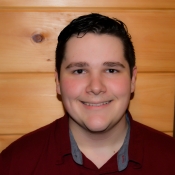
Stefen Gray ’20 grew up in Georgia and graduated high school from Northside High School. He is currently a junior at the University of North Georgia where he is pursuing a major in Environmental Spatial Analysis with a minor in Computer Science. He has completed two internships while attending high school. His first internship was with Futura Systems, Inc, an industry-leading GIS software for utility providers. He also interned for the City of Columbus in their GIS Department. Upon graduating next spring, he is interested in transferring to the Georgia Institute of Technology to pursue an engineering degree. In his spare time, he enjoys the outdoors, web site design and learning online.
Scott Williams
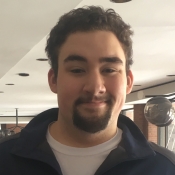
Scott Williams is a sophomore geography and political science double major and a member of the Edgar Fellows Honors Program at SUNY Geneseo. He has research interests in the impacts of climate change on human displacement, the role of government policy on environmental issues, and encouraging sustainable development through education. Currently, Scott is using geographic information systems to map flooding along the southern coast of Lake Ontario and examine the role local and state government has played in both causing and mitigating the flooding. On campus, Scott serves as the Vice President of Service for the service fraternity Alpha Phi Omega, a tour guide, and a student senator.
Deborah Orieta
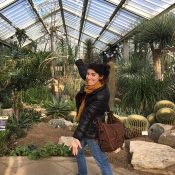
Deborah Orieta is a Human Geography and Food Studies double major at Syracuse University. She is interested in the relationship between globalization processes and sustainable development, with a focus on food production and access. As part of her degree, she wants to do research around food security in non-sovereign island nations like Puerto Rico, the Marshall Islands, etc. Post graduation, she sees herself doing participatory research on community geography and urban resilience strategies, though her dream is to write for national geographic and run a bakery. When home for the summer, she works with the Conservation Trust of Puerto Rico as assistant leader in their Nature Immersion Workshops, where she teaches about environmental conservation and ecosystems. Currently, she is completing a travelling seminar on Environmental Justice, doing ethnographic fieldwork on Scandinavian sustainability.
Claudia McDaniel
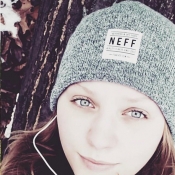
Claudia is completing her Certificate in Geospatial Information Science and Technology (GIST) at Monroe Community College in Rochester, NY where she grew up. This Certificate has taught her to convert remote sensing information provided by satellites and imagery into digital data. Through classroom and computer lab experience, she’s learned to use specialized program software to collect, convert, and integrate geographical data to produce data layers, maps, tables, and reports. While unsure of her next academic move, she knows she will integrate her knowledge of GIST into whatever field she pursues next. Some fields of interest include ecology, zoology, marine biology, environmental science, disaster management and sustainability. In Claudia’s spare time, she enjoys traveling, swimming and searching for opportunities to further develop the skills that are needed to understand emerging technology with the goal of being useful to society and improving lives.
Matthew J. Plummer
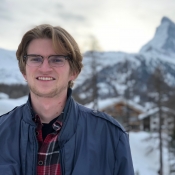
Hi, my name is Matt Plummer and I am a rising Senior studying Geography at Penn State University. My main fields of interest are satellite imagery analysis, disaster relief management, and immersive visualization. When outdoors, I enjoy hiking and snowboarding. Nothing is more fulfilling to me than exploring and finding cool things in nature. I’d like to get into photography, but I’m pretty miserable at it. When indoors, I enjoy making music and playing video games. I am currently on the fence as to whether or not I want to go to graduate school, or straight into industry. Going to work doing satellite image analysis for NASA would be a dream come true, but that’s about all I’ve got so far.
Emily Gawlik
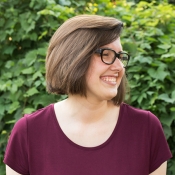
Emily Gawlik is a member of the Sally McDonnell Barksdale Honors College at the University of Mississippi. She is a senior, majoring in Psychology and minoring in Political Science and Classics. Her research interests include disaster mental health and related concepts of positive psychology like resilience, meaning in life, and post-traumatic growth. She is also interested in the dissemination and implementation of evidence-based programs and services and the multitude of ways in which technology and social science can interface to improve emergency preparedness through education and broadened awareness.She plans on pursuing a doctoral degree in clinical psychology and hopes to continue her studies in an interdisciplinary context, with continued emphasis on determining how best to cultivate growth and bolster well-being in communities and individuals affected by natural disasters and episodes of mass violence. In her spare time, she enjoys collecting records, playing bar trivia, and following Premier League soccer.
Amy Walker
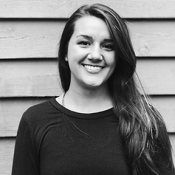
Amy Walker is a third-year student at Appalachian State University, where she majors in Sustainable Development, minors in Mathematics, and pursues a certificate in GIS technologies. Her degree program combines various natural and social sciences to understand the complex balance between social, economic, and environmental variables in sustainable systems. She hopes to use GIS technologies to analyze these factors in order to help cultivate a more just and sustainable future. Amy’s research interests include water sciences & systems, sustainable engineering, natural resource management, equitable development, and grassroots activism. She looks forward to pursuing these further in graduate school. After her education, she hopes to help solve issues brought on by global climate change through a career in academia, public policy, affairs, or engineering. In her personal life, Amy enjoys reading, running for really long periods of time, traditional-American folk dance, asking hard questions, and answering those with even harder questions.
REU 2019 Cohort - click on each Fellow's picture to learn more about them.
Emily Haberlack
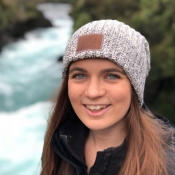
Emily Haberlack is a third-year student at Iowa State University studying Environmental Science, Environmental Studies, and Sociology. She has been involved in science communication on campus for two years creating a literature review of quantitative experiments using empathy as an intervention to change behavior in environmental, health, and risk fields. Her particular research interest is the diffusion of innovations relating to science and risk communication. After graduation, Emily is hoping to pursue a PhD in sociology or in sustainable rural livelihoods.
Her internship experience includes working as an interpretive naturalist intern at the World of Birds Show at the Minnesota Zoo and working on a permaculture farm in Hawke’s Bay, New Zealand.
On campus she is an Undergraduate Research Ambassador and member of Alpha Gamma Delta, Rho Chapter.
Outside of classes she enjoys running, yoga, and spending time at the local conservatory (especially in the winter).
Julia Olson
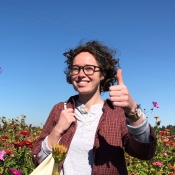
Julia Olson is a third-year, triple-major in Spatial Data Science and Technology, Geography, and Environmental Studies at the University of Oregon. Originally from Stoughton, Wisconsin, she is interested in the nexus of long-term cultural, social, and economic sustainability and mapping. Specifically, using cartographic products to communicate information to wide and receptive audiences to aid in creating and enabling systematic and individual change. Furthermore, her interests include uniting the emergence and impacts of wide-scale global events due to climate change and our concepts of functional maps for those situations. She looks forward to pursuing these interests in graduate school. Currently, Julia works as the Waste Reduction and Reusables Coordinator at the Student Sustainability Center, developing and implementing programming and initiatives surrounding single-use plastic and tackling waste reduction and sustainability on campus. In her personal life, she enjoys biking, playing ultimate frisbee, making pancakes, and following the National Women’s Soccer League.
Enith Lay
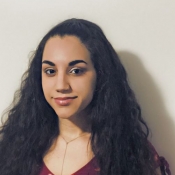
Enith was born in Cuba and moved to Rochester at the age of two. She has always loved the outdoors and learning about the earth and how it works. She is currently attending Monroe Community College where she is finishing her Associates degree in Geography along with a Certificate in Geospatial Information Science and Technology (GIST). Enith is also a part of a hybrid study abroad program where she will be traveling to Cartagena, Colombia to develop a mapping app to monitor the quality of water along the Caribbean Sea as well as increase cultural awareness. She has a wide variety of interest such as natural disaster relief, food demand, sustainability, and water stress. She hopes to use GIS to help make the lives of communities across the globe that are in real need better. In her free time spending time outdoors with her two dogs, listening to music and hula hooping.
Kyle Pecsok
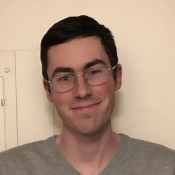
Kyle Pecsok ‘20 is a Geography Major and Sociology Minor at Clark University. He is interested in studying GIS, Urban/Development Geography, and social issues related to urban development. His research interests are learning and using methods of GIS to understand the impacts that development and weather events have on communities and specific groups that live within those communities. Last year Kyle participated in a REU at the University of South Florida examining how proximity to different types of waterbodies impact one’s concern of climate change. His current plan after graduation is to participate in Clark University’s Accelerated B.A./Master’s Program and earn an M.S. degree in GIS. He hopes to enter a career that utilizes GIS technology to create efficient development that is safe and beneficial for the community, specifically disadvantaged groups. In his free time, Kyle’s enjoys travelling, running, hiking, and downhill skiing.
Jeshua Johnson
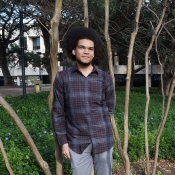
Jeshua Johnson is a Texas native pursuing game development and GIS at The University of Texas in Austin. With a love of game design and the outdoors, he hopes to develop techniques in implementing geospatial data in the creation of virtual environments that are as dynamic as the real world. While attending university, he has also worked in IT for over four years, giving him skills to tackle any challenge. In his free time, he enjoys hiking the beautiful Austin Greenbelt, playing video games, and cooking a variety of food. He is also looking forward to delving into the world of research at the frontier of innovation.
Savannah Baker
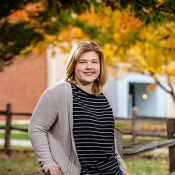
Savannah Baker is a sophomore honors student double majoring in Emergency and Disaster Management and Geographic Information Science at Northwest Missouri State University in Maryville, Missouri. In addition to being a member of the Society of Presidential Scholars, EDM Club, and Sigma Society, she was the 2019 undergraduate recipient of the IAEM Robert C Bohlman, CEM, Scholarship for Service in Emergency Management. Her research interests include the statistical analysis of vulnerable populations, digital mapping, international relief, and counter terrorism. She has immersed herself in every opportunity for hands on training, including participating in four full-immersion, simulation-based field training exercises coordinated by the Consortium for Humanitarian Service and Education. In her spare time, she enjoys reading, cheering on the Nebraska Cornhuskers, cooking, crafting, volunteering, and pursuing things other people think are impossible. Her ideal career would combine her two fields of study while saving the world at the same time.
Emma Thomley
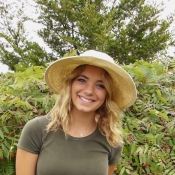
Emma Thomley is an Environmental Studies major and Public Policy minor at Carleton College in Minnesota. Within her degree, she has been exploring the connections between effective environmental policy implementation and environmental justice. She is also interested in studying the potential impacts of climate change by researching mitigation and adaptation strategies. Currently she is evaluating the effects of climate change on global public health, specifically focusing on areas of differing socioeconomic statuses. After graduation, she plans on either pursuing law school and studying environmental law, or continuing her studies in sustainability at the postgraduate level. At Carleton, she spends her spare time running track and field, singing in an acapella jazz choir, and competing on Carleton’s mock trial team.
Erin Mahoney
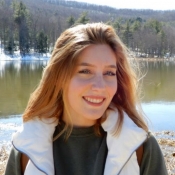
Erin Mahoney is a junior at Binghamton University triple majoring in Political Science, Environmental Planning and Geography. Her research interests include social issues that possess spatial characteristics, thus tying in her areas of study. Most recently, she has completed a spatial analysis of food insecurity risk and known need in Broome County, NY. This work will enable the county to redistribute food aid to better meet the needs of residents. Erin also serves as a voting member of the Broome County Environmental Quality Council, a key group that advocated for the city of Binghamton to become a Climate Smart Community. Erin wants to continue her studies in graduate school, although she is unsure of her preferred area of study. In her spare time, Erin works as the Head Personal Trainer at the Binghamton University Gym where she shares her love for health and wellness in hopes of increasing the quality of life of clients.
